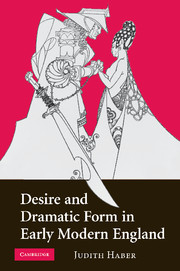Afterword: for(e)play
Published online by Cambridge University Press: 02 July 2009
Summary
I expect my Playes will be found fault with, by reason I have not drawn the several persons presented in a Circular line, or to a Triangular point, making all the Actors to meet at the latter end upon the Stage in a flock together … But to plead in my Playes behalf, first, I do not perceive any reason why the several persons presented should all be of an acquaintance, or that there is a necessity to have them of one Fraternity, or to have a relation to each other, or linck'd in alliance as one Family, when as Playes are to present the general Follies, Vanities, Vices, Humours, Dispositions, Passions, Affections, Fashions, Customs, Manners, and practices of the whole World of Mankind, … and all these Varieties to be drawn at the latter end into one piece, as into one Company … shews neither Usual, Probable, nor Natural … I love ease so well, as I hate constraint even in my works; for I had rather have a dull easy life, than be forced to active gayeties, so I had rather my Playes should end dully than unnecessarily be forced into one Company, but some of my Playes are gathered into one sheaf or bundel in the latter end.
Margaret Cavendish, “To the Readers,” Playes, 1662Conclusions are difficult, especially in a book that has spent much of its time questioning narrative closure.
- Type
- Chapter
- Information
- Desire and Dramatic Form in Early Modern England , pp. 131 - 133Publisher: Cambridge University PressPrint publication year: 2009



